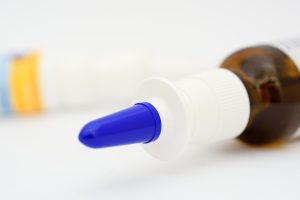What is genital itching?
You are likely experiencing genital itching if you feel the need to scratch the skin around your private parts. If the itch doesn’t go away, you may need to consult a doctor for treatment. Itchy genitals may be a symptom of chlamydia- an STI caused by chlamydia trachomatis. Does chlamydia itch?
Itchy genitals can be a symptom of various health conditions, including sexually transmitted infections. For example, some women may experience itching as a symptom of vaginal disease. In contrast, some men may experience jock itch. In addition, itching may be caused by sexually transmitted infections, allergies, or skin irritation in both genders.
In most cases, if the factor causing the irritation is removed, the itching can clear up on its own. However, some patients may need more definitive treatment before the itching eases.
Even though chlamydia is a common infection, most people with the disease show no symptoms and are unaware they are infected. In cases where symptoms show, they may include an unusual discharge associated with itchiness in the vagina.
Does chlamydia itch?
One of the most common symptoms of chlamydial infection is itching in and around the genital area, so yes, chlamydia can make you itch. In fact, itching is an associated symptom of most sexually transmitted diseases.
This means that if you experience some kind of itching in your genitals, it might not necessarily be caused by chlamydial infection. Itching can occur for men and women in different areas of the body for various reasons.
In addition, not all itchiness is caused by an infection or adverse health conditions.
You must consult your healthcare provider if you are experiencing itching and it doesn’t ease.
STDs that cause itching
Practically all STDs can cause some form of itching for an infected person. In addition, STDs other than chlamydia, such as gonorrhea, genital herpes, trichomoniasis, pelvic inflammatory disease, human papillomavirus, and HIV, can cause itching and even contribute to the development of rashes, bumps, sores, or lesions on the genitals or other body parts like the anus, lips, or mouth.
These rashes, sores, and other skin conditions can be uncomfortable and itchy. Furthermore, most STDs cause a burning or itchy sensation and pain during urination.
Itching and genital discharge
Infected people may also notice an unusual discharge from the penis or vagina and itchiness.

Please note that the discharge may or may not occur, so its absence does not mean you don’t have an infection. If you reckon you might have contracted an STD, it’s essential you get tested as soon as possible.
As highlighted previously, itching doesn’t necessarily mean you have an infection, even if it can be a telltale sign of an STI. If you’re experiencing itching, you need to identify the type of itching you’re feeling.
For instance, rashes or bumps around the penis or vagina can cause itching.
Other conditions like jock itch, genital warts, pubic lice, or scabies can also cause itching.
For some women, itching in the vagina may be because of a urinary tract infection, yeast infection, or menopause.
Where does chlamydia itch?
Where does chlamydia itch? Most of the symptoms associated with chlamydia typically manifest in and around the body’s reproductive organs. For women, chlamydia can cause itching in and around the vagina.
If you’re experiencing itching in your private parts without relief, you should immediately contact your healthcare provider for further consultation.
Frequently Asked Questions
If you’re experiencing itchy genitals, it’s understandable that you want to find an immediate solution to your condition. However, you must first determine the cause of the itch before using any cream, lotion, balm, or drugs. This is important because sometimes, the symptoms of yeast infections can look similar to an STD.
In addition, if your itch is caused by an STD, you must treat the infection. Over-the-counter treatment may work to make the itch stop, but the STD may continue to exist in your body, leading to long-term damage. To be safe, do STD tests regularly if you are sexually active.
The bacteria that causes chlamydia can be transmitted from one infected person to the other through the rectum during anal sex. Chlamydia in the anus can cause itchiness, pain, bleeding, or a mucus-like discharge. If you’re experiencing itching in your anus and it doesn’t go away, ensure to consult your doctor to get screened and treated.
You can have an itching vagina without having any underlying disease or infection. Factors like sunburns, insect bites, dry skin, hair regrowth, or wounds can cause itchiness around your vagina. However, if you’re experiencing swollen vagina and a thick, smelly discharge, you should consult your healthcare provider. Swollen labia and unusual smelly discharge may be caused by conditions like bacterial vaginosis or a yeast infection.
Many reasons can cause vaginal itching. In most cases, a typical vagina itch shouldn’t be a cause for concern. For instance, this itching can be caused by allergies or skin irritations that can ease up on their own if the irritants are eliminated. However, it is vital to note that a healthy vagina shouldn’t itch consistently or too often. Therefore, if you notice your vagina itches too often or for a protracted period, contact your healthcare professional for help.
An itchy vagina can indicate several conditions. These conditions include yeast infection, bacterial vaginosis, irritants and allergies, eczema, and others. It is also one of the most common chlamydia symptoms.
STDs can cause various symptoms to occur. One of the symptoms is genital itching. If you’re experiencing genital itching and are sexually active, especially with multiple partners, you can get an STD. Some STDs that may cause itching in the genitals include chlamydia, gonorrhea, trichomoniasis, genital herpes, and genital warts.
When to see a doctor
Genital itching can be a pretty regular occurrence. However, it can indicate a medical condition that shouldn’t be left untreated. Therefore, if you have consistent and unyielding itching in your genitals, it’s best to reach out to your healthcare specialist as soon as possible.





